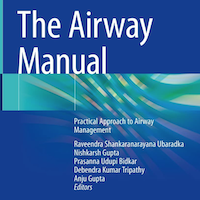
Intracranial Pressure Thresholds in Severe Traumatic Brain Injury: Pro
Teleologically, the mammalian brain has evolved to be the central component of life. It coordinates afferent and efferent neural pathways, integrates neurohormonal responses and, in humans, produces higher cortical effects... read more

Early application of continuous HVHF can reduce sepsis and improve the prognosis of patients with severe burns
Early application of high-volume haemofiltration (HVHF) benefits patients with severe burns, especially for those with a greater burn area (≥ 80% TBSA), decreasing the incidence of sepsis and mortality. This effect may... read more

Operation Timing and 30-Day Mortality After Elective General Surgery
Elective general surgery appears to be comparably safe at any time of the workday, any day of the workweek, and in any month of the year. The binary outcomes of 32,001 elective general surgical patients at the Cleveland Clinic... read more

Timing of Renal Support and Outcome of Septic Shock and ARDS
Early RRT initiation strategy was not associated with any improvement of 60-day mortality in patients with severe acute kidney injury and septic shock or Acute Respiratory Distress Syndrome (ARDS). Unnecessary and potentially... read more

Increasing the Number of Medical Emergency Calls Does Not Improve Hospital Mortality
With adjustment for patient factors, illness, and comorbidities, increased emergency calling rates were not associated with reduced in-hospital mortality. Efforts to increase calling rates do not seem warranted. We studied... read more

The Checklist Manifesto: How to Get Things Right
We train longer, specialize more, use ever-advancing technologies, and still we fail. Atul Gawande makes a compelling argument that we can do better, using the simplest of methods: the checklist. In riveting stories, he reveals... read more

Health-related Outcomes of Critically Ill Patients With and Without Sepsis
Critically ill patients with sepsis have higher healthcare resource use and costs but similar survival and HRQoL compared to matched patients without sepsis. We conducted a primary propensity score matched analysis of patients... read more

Foleys Aren’t Fun: Patient Study Shows Catheter Risks
A new study puts large-scale evidence behind what many hospital patients already know: Having a urinary catheter may help empty the bladder, but it can hurt, lead to urinary tract infections, or cause other issues in the... read more

Treatment of Acute Non-Anion Gap Metabolic Acidosis
Acute non-anion gap metabolic acidosis is now recognized to be as a common cause of metabolic acidosis, particularly in the ICU. Further examination of its impact on cellular function and clinical outcome are needed. Most... read more

The Intensive Care Medicine Research Agenda in Nutrition and Metabolism
Priorities for clinical research in the field of nutritional management of critically ill patients were suggested, with the prospect that different nutritional interventions targeted to the appropriate patient population... read more

Nephrology Secrets
Recently released, Nephrology Secrets, features the highly regarded "Secrets Series" popular question-and-answer format that also includes lists, tables, and an easy-to-read style – making reference and review quick, easy,... read more

Evaluation of a strategy for enrolling the families of critically ill patients in research using limited human resources
Family members were recruited for more than one third of eligible patients, and >90% of approached consented to participate. There are important demographic differences between patients with vs without an enrolled family... read more

Presenting Symptoms Independently Predict Mortality in Septic Shock
More than one third of patients with septic shock presented to the emergency department with vague symptoms that were not specific to infection. These patients had delayed antibiotic administration and higher risk of mortality... read more

Collective Quality Improvement in the Pediatric Cardiology Acute Care Unit
Collaborative quality improvement and learning networks have amended healthcare quality and value across specialities. Motivated by these successes, the Pediatric Acute Care Cardiology Collaborative (PAC3) was founded in... read more

Immunotherapy for Sepsis: A Good Idea or Another Dead End?
THE treatment of sepsis remains an intractable problem in critical care. It has been called the “graveyard”1 for pharmaceutical companies in recognition of dozens of negative clinical trials; this reflects multiple distinct... read more

Decatecholaminisation during sepsis
While necessary and life-saving in the early fight or flight reaction to any insult, prolonged adrenergic stress is detrimental and contributes to organ dysfunction. In the largest trial to date, Morelli et al. enrolled septic... read more

Survival outcomes after prolonged ICU length of stay among trauma patients: The evidence for never giving up
Prolonged intensive care unit length of stay (ICU-LOS) is associated with high mortality for medical and surgical patients. Existing literature suggests that this may not be true for trauma patients.The results reveal that... read more








